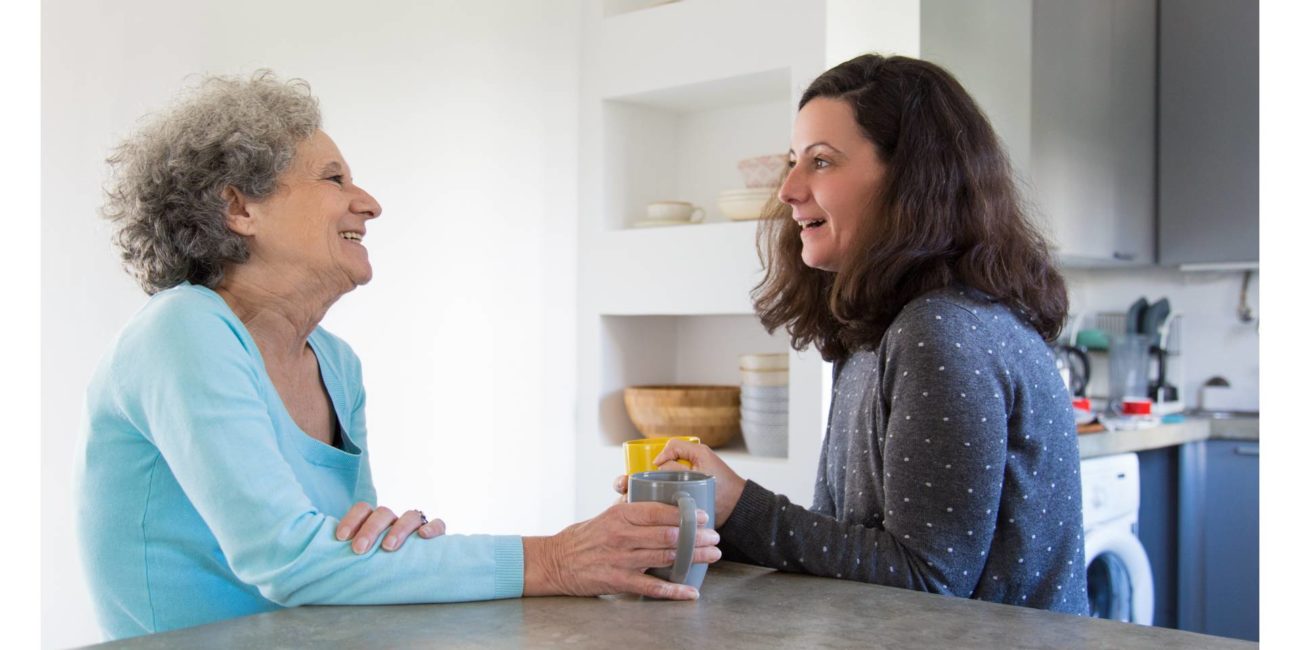As Families Change, Relationships Change
If you have an aging parent, It’s likely that you’ve already begun to help your parents in ways you’ve never had to before. Maybe you’ve begun to manage paying the bills, driving mom to doctor’s visits, or helping dad out with yard work that he just can’t do anymore. This process of role reversal is called “parentification,” and it describes the dynamic wherein children assume more and more responsibility and control over their parent’s lives, eventually acting as parents to their parents. While confusing and possibly overwhelming, this process is a very common part of aging for older adults and their families.
Most often, parentification is gradual and begins with the smaller aspects of life, but you can quickly find yourself and your siblings taking on a caregiver role as your parents continue to age. While uncomfortable for you, it can be equally uncomfortable for mom and dad as issues of pride and privacy create conflict and discomfort. That said, I have a few tips to make sure everyone involved can stay as happy as possible.

Plan for Parentification
Even if you think you’ll never be there, planning for parentification is an important safeguard for the emotional wellbeing of you, your parents, and your family as a whole. Parentification can come on suddenly, and we’re often at our worst when we’re in crisis mode. Whatever it may be that brings you into the parent role, you’re going to want to know your course of action before you get there. It’s always better for these decisions to be made without the stress of a crisis looming over you and your family.
This plan should include input from you, your parents, and any others who might take part in the caregiving process. Play to each other’s strengths, and define roles based on one another’s ability and capacity to care. Maybe you live closest to your parents and could take on everyday tasks such as grocery shopping or driving, while your sister who works in finance lives across the country but could handle organizational tasks like bills and asset management. Furthermore, creating contingency plans for times of crisis can help you avoid sticky situations.

Set Boundaries
Parentification means you’ll likely take a stronger role in your parent’s everyday life. The boundaries you’ve been accustomed to are likely going to be broken, so it’s important to set new boundaries with the interests of yourself and your parents in mind. These boundaries will be different for everyone, but they’re important in order to maintain a healthy relationship with your loved ones. Setting these boundaries early on is particularly important, so you can honor the wishes of yourself and your parents throughout the process of parentification. For example, your parents might not want you to provide personal care like bathing and hygiene, which would mean you will have to look for a third-party caregiver should you ever get to that point.

Communicate Effectively
Care and money, two of the biggest issues you’ll face in this process, also tend to be major triggers of family conflict and misunderstanding. You’ll want to know how to approach communication with your parents and family in order to ensure this process will go smoothly. When communicating with parents, be sure to interact with them as equals in this process. Oftentimes, the children of older adults have a tendency to patronize and damage the pride of their parents, leading to conflict and resentment. When speaking with them, make sure you approach the topic by asking questions of them, not deciding issues for them. Giving them an opportunity to voice their own opinions will help them feel better about the process. Your body language and tone are important as well. Always sit on a level playing field, never standing over your aging parents. Speak in a normal tone as well. A lot of people like to use a higher pitch when speaking with older adults, but this can often come off as patronizing. They are still adults, and they need to feel that way.

Know Your Limits
While we try our best to care for our aging loved ones, there are some things that we simply cannot do. If caring for your loved ones is putting an unsustainable stress on your personal life and relationship with your parents, you might need to seek the help of an in-home caregiver or look for assisted living options. If issues are just too sensitive to speak about with your parents, tensions are high, or your loved one is feeling depressed because of these changes, you might want to consider seeking help from a behavioral health expert such as those at WellQor. They can meet with the entire family, mediate the situation, and give direction to your aging loved one.
About the Author
Candace Williams, LCSW, ASW-G, FDC, CMS, FDC, MCPM, is the Director of Clinician Development for WellQor, the nation’s leading provider of behavioral health services for Seniors. Candace received her MSW from Columbia University, and has spent over 20 years in the field developing unique interventions to better the lives of her clients. Throughout her time in the field, Candace has worked as a certified geriatric social worker, certified mediator, crisis management specialist, and family development specialist. She received the UnSung Heroes Award for her work during September 11th, where she supervised the disaster welfare inquiry center. For the last 10 years, she has specialized in working with older adults and their families, establishing herself as an industry expert with multiple published works, and regular public appearances speaking on the emotional and cognitive health of seniors. At WellQor, Candace has created an extensive clinician training program, and continues to oversee the professional development and training of new clinicians. She also moderates their unique Clinician Connect platform, where psychologists and social workers collaborate to identify the appropriate interventions for older adults who are in need of support.




Leave a Reply